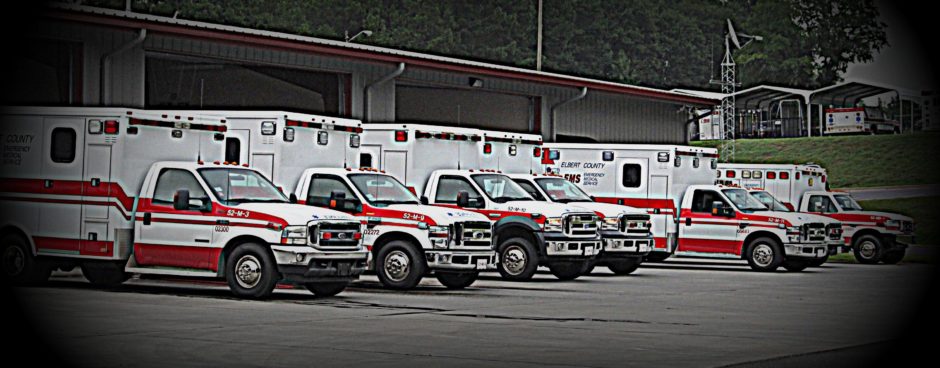Severe Weather Awareness Week:
Thunderstorm Safety Tips
You may be tempted to ignore thunderstorms because they are extremely common in Georgia and affect relatively small areas when compared with hurricanes and winter storms. Despite their small size, however, all thunderstorms are dangerous because they can produce strong winds, lightning, tornadoes, hail and flash flooding. The typical thunderstorm is 15 miles in diameter and lasts an average of 30 minutes.
“Straight-line winds can exceed speeds of 125 mph and produce damage similar to a tornado,” says Elbert County Emergency Management Agency (EMA) Director Chuck Almond.
According to the National Weather Service, on average, we can expect 45 to 55 days with thunderstorms each year in Georgia. Approximately 10 percent of all thunderstorms that occur in the U.S. are classified as severe. The biggest threat from severe thunderstorms is damaging straight-line winds and large hail. They occur in every month of the year, but are most common in the spring and summer months, peaking in July.
Here is some information to help you recognize severe weather, develop a plan, and be ready to act when threatening weather approaches:
To prepare for a thunderstorm, you should do the following:
· Remove dead or rotting trees and branches that could fall and cause injury or damage during a severe thunderstorm.
- Remember the 30/30 lightning safety rule: Go indoors if, after seeing lightning, you cannot count to 30 before hearing thunder. Stay indoors for 30 minutes after hearing the last clap of thunder.
What you should do if a thunderstorm is likely in your area:
- Postpone outdoor activities.
- Get inside a home, building, or hard top automobile (not a convertible). Although you may be injured if lightning strikes your car, you are much safer there than outside.
- Remember, rubber-soled shoes and rubber tires provide no protection from lightning. However, the steel frame of a hard-topped vehicle provides increased protection if you are not touching metal.
- Secure outdoor objects that could blow away or cause damage.
- Shutter windows and secure outside doors. If shutters are not available, close window blinds, shades, or curtains.
- Avoid showering or bathing. Plumbing and bathroom fixtures can conduct electricity.
- Use a corded telephone only for emergencies. Cordless and cellular telephones are safe to use.
- Unplug appliances and other electrical items such as computers and turn off air conditioners. Power surges from lightning can cause serious damage.
- Use your battery-operated NOAA Weather Radio for updates from local officials.
Avoid the following:
- Natural lightning rods such as a tall, isolated tree in an open area.
- Hilltops, open fields, the beach, or a boat on the water.
- Isolated sheds or other small structures in open areas.
- Anything metal—tractors, farm equipment, motorcycles, golf carts, golf clubs, and bicycles.
To help families prepare, Ready Georgia, a statewide emergency preparedness campaign established by the Georgia Emergency Management Agency/Homeland Security offers the tools needed to make an emergency supply kit, develop a communications plan and stay informed about potential threats. Visitors to Ready Georgia’s website, www.ready.ga.gov, can create an online profile to receive a tailored plan for the entire family that includes the specific amount of supplies to put in their household Ready kits. They can also find local emergency contact information, learn about Georgia-specific disasters and read preparedness testimonials from local sports stars. Employers can use the Ready Your Business guide to create custom contingency plans and children can visit the ReadyKids page for age-appropriate information, videos and games. For preparedness on the go, families can also download Ready Georgia’s free mobile app to learn how to prepare for emergencies, create family communications plans and more.
For more information, contact Elbert County EMA at 706-283-2003 or visit these websites: www.ready.ga.gov, www.srh.noaa.gov/ffc/ or www.gema.ga.gov.
About Ready Georgia
Ready Georgia is a statewide campaign designed to educate and empower Georgians to prepare for and respond to natural disasters, pandemic outbreaks, potential terrorist attacks and other large-scale emergencies. The campaign is a project of the Georgia Emergency Management Agency (GEMA) and provides a local dimension to Ready America, a broader national campaign. Ready Georgia aims to prepare citizens for maintaining self-sufficiency for at least 72 hours following an emergency, and uses an interactive website, free mobile app, online community toolkit, broadcast and print advertising and public awareness media messaging to reach its audiences. Ready Georgia is also on Facebook and YouTube.
